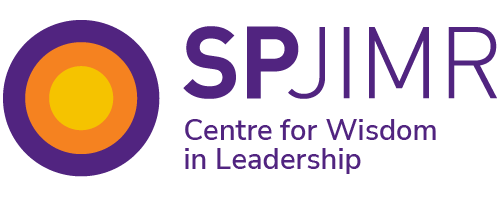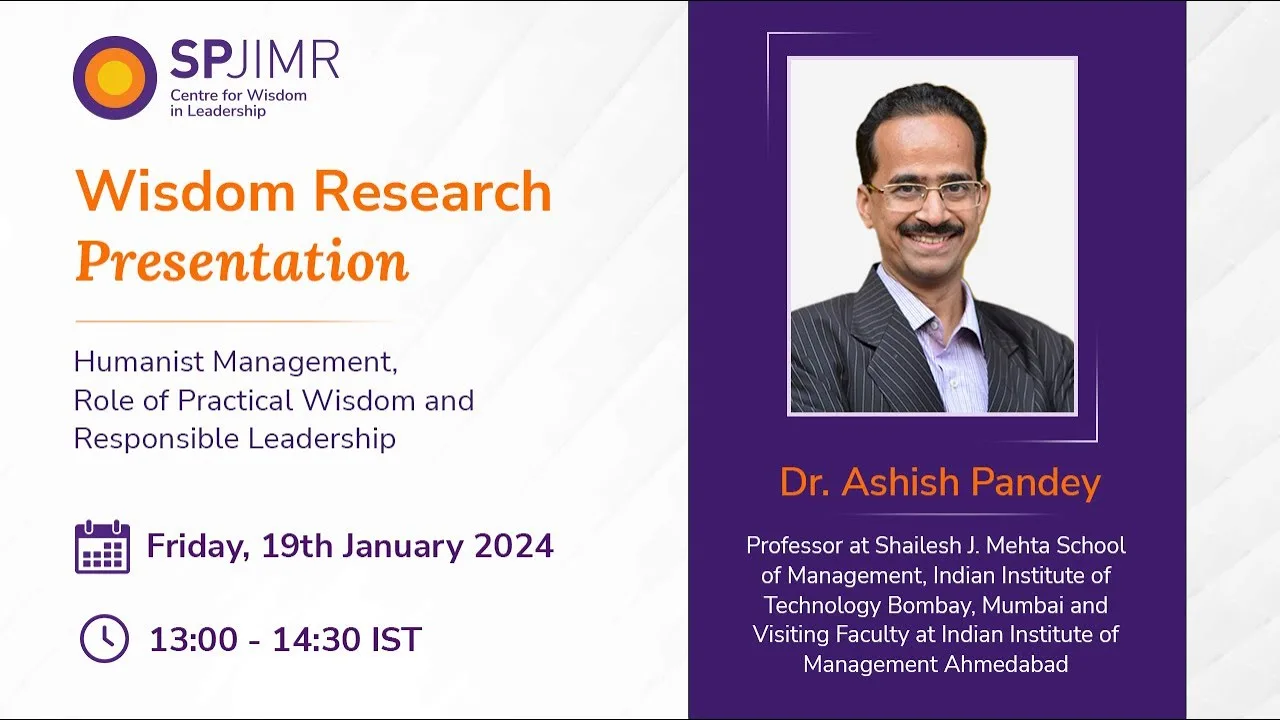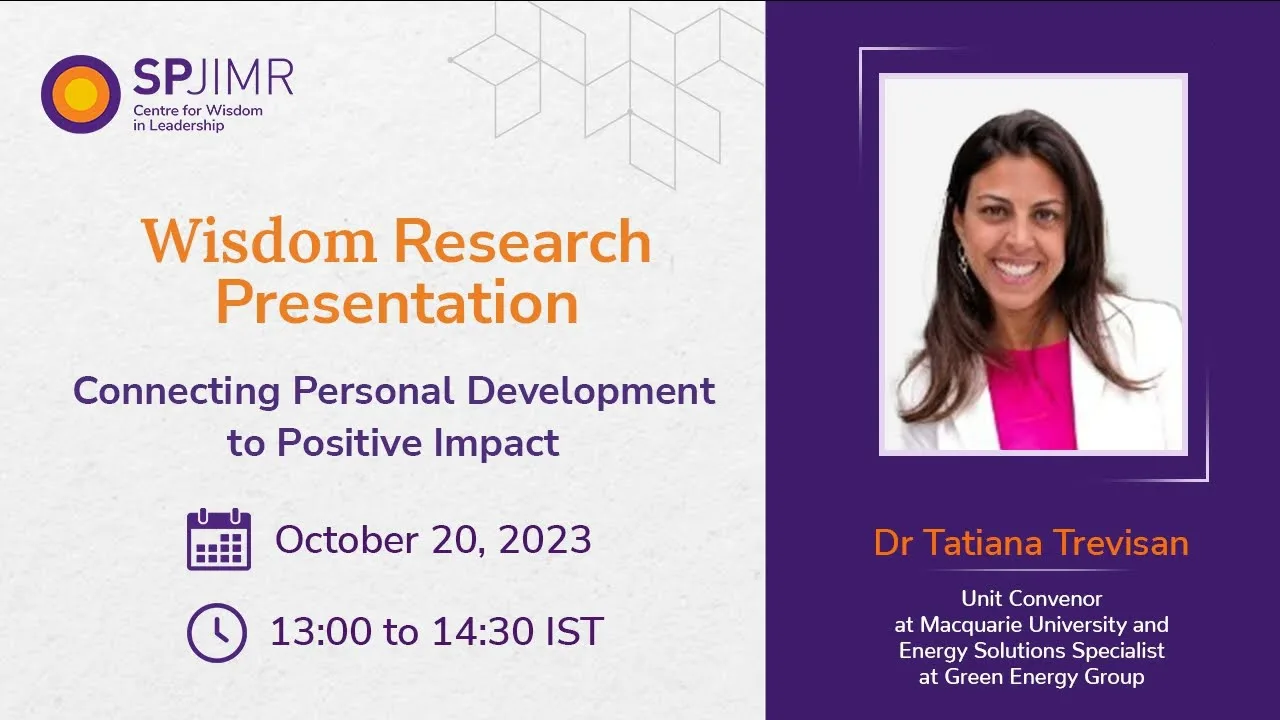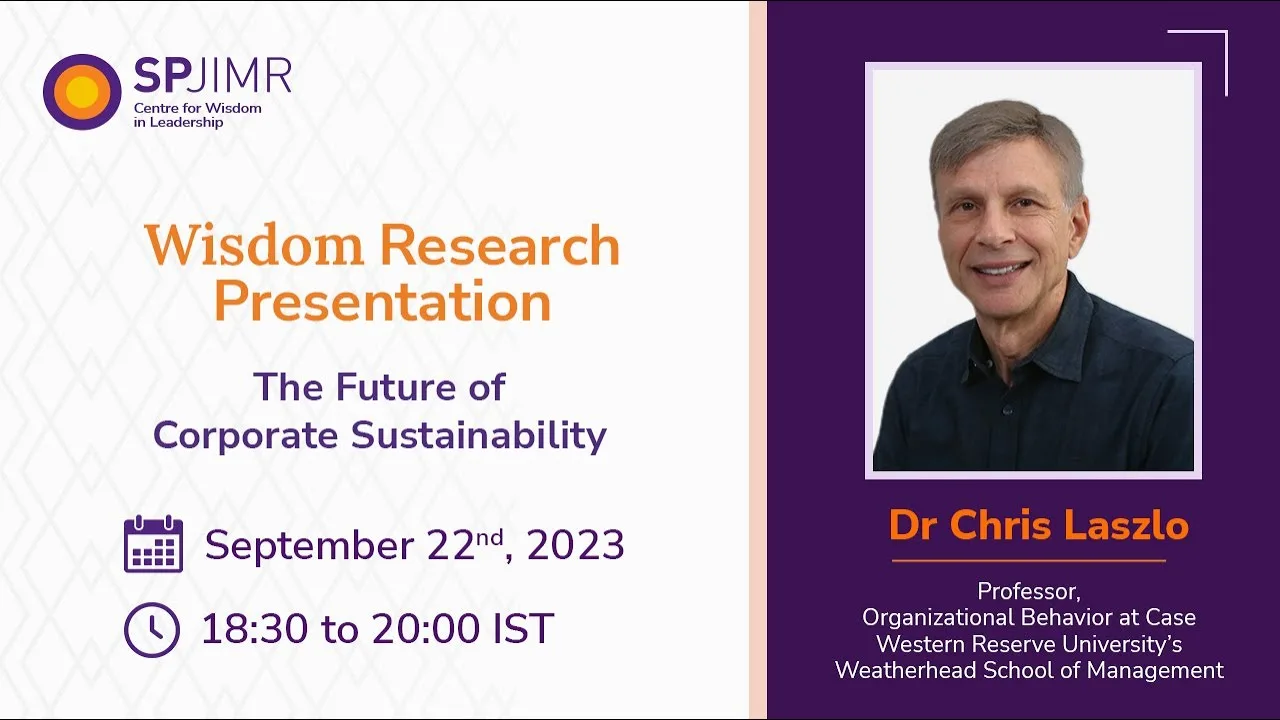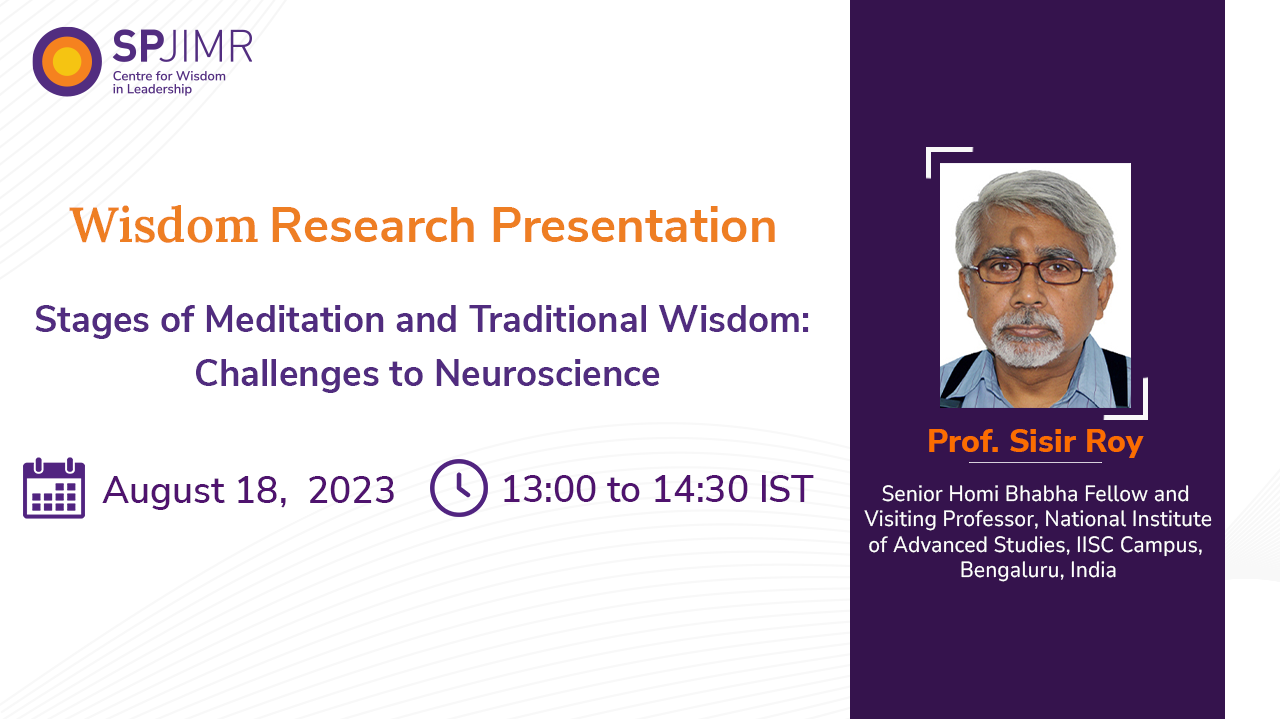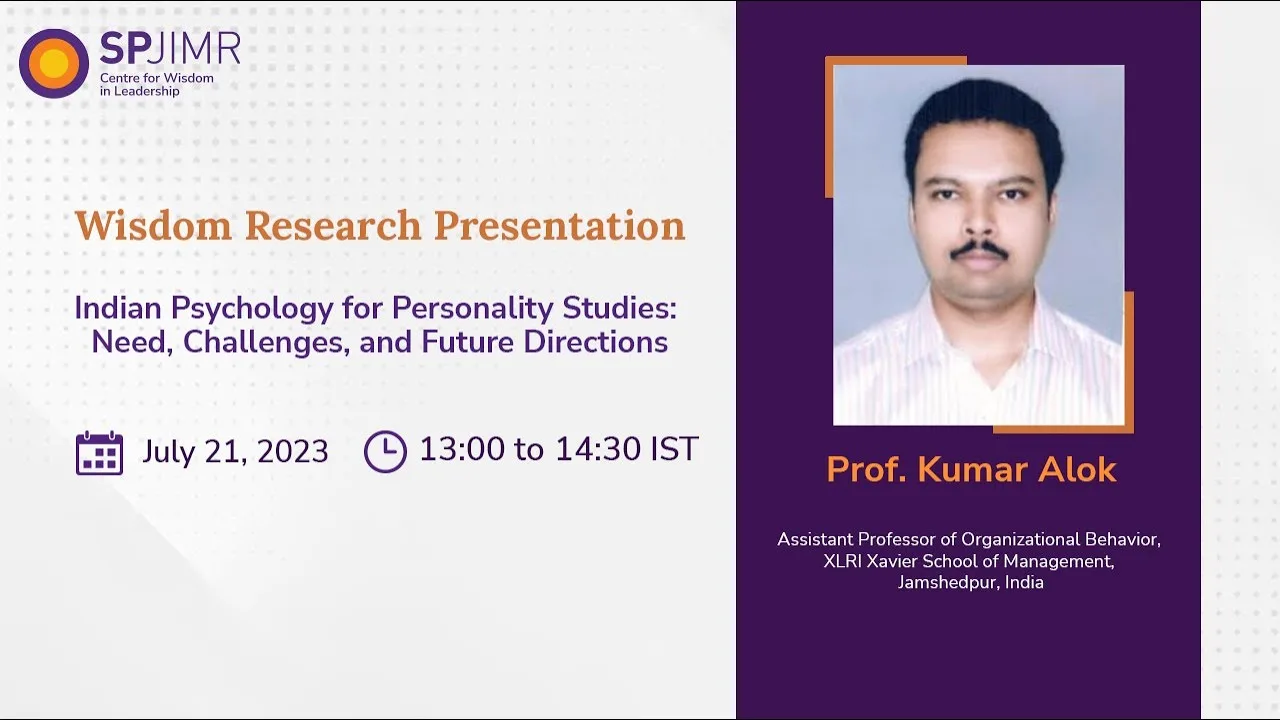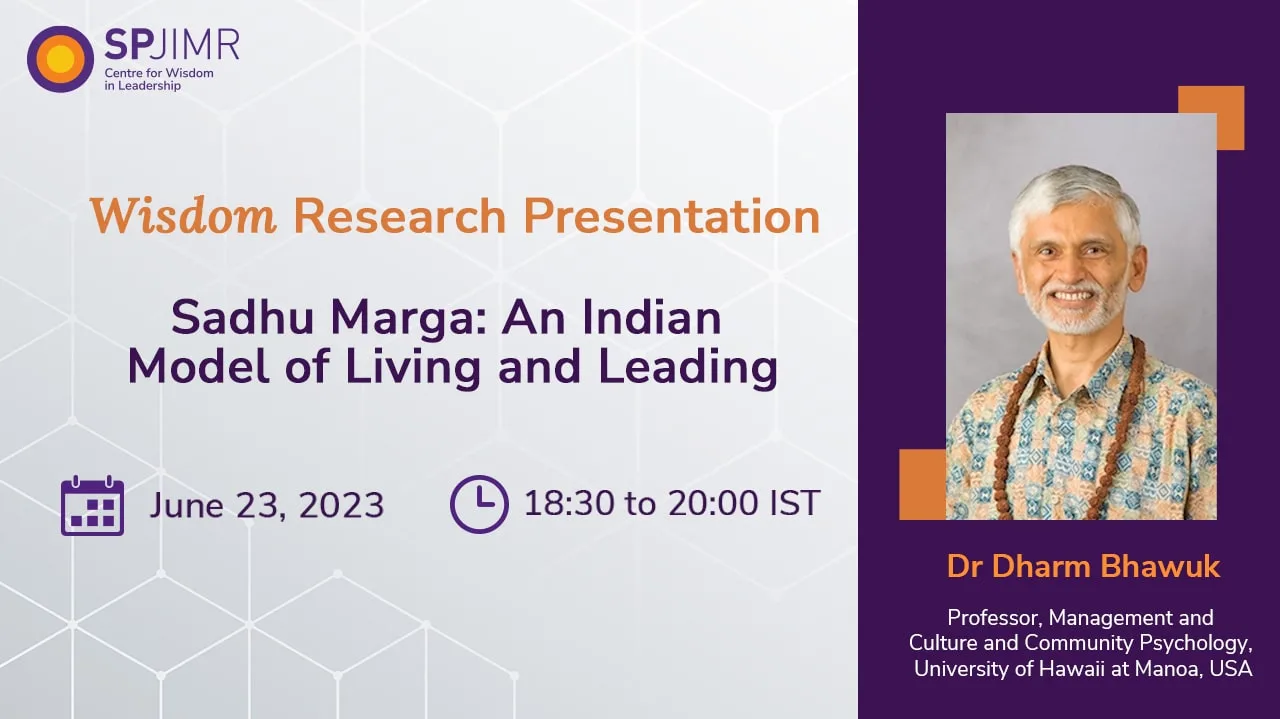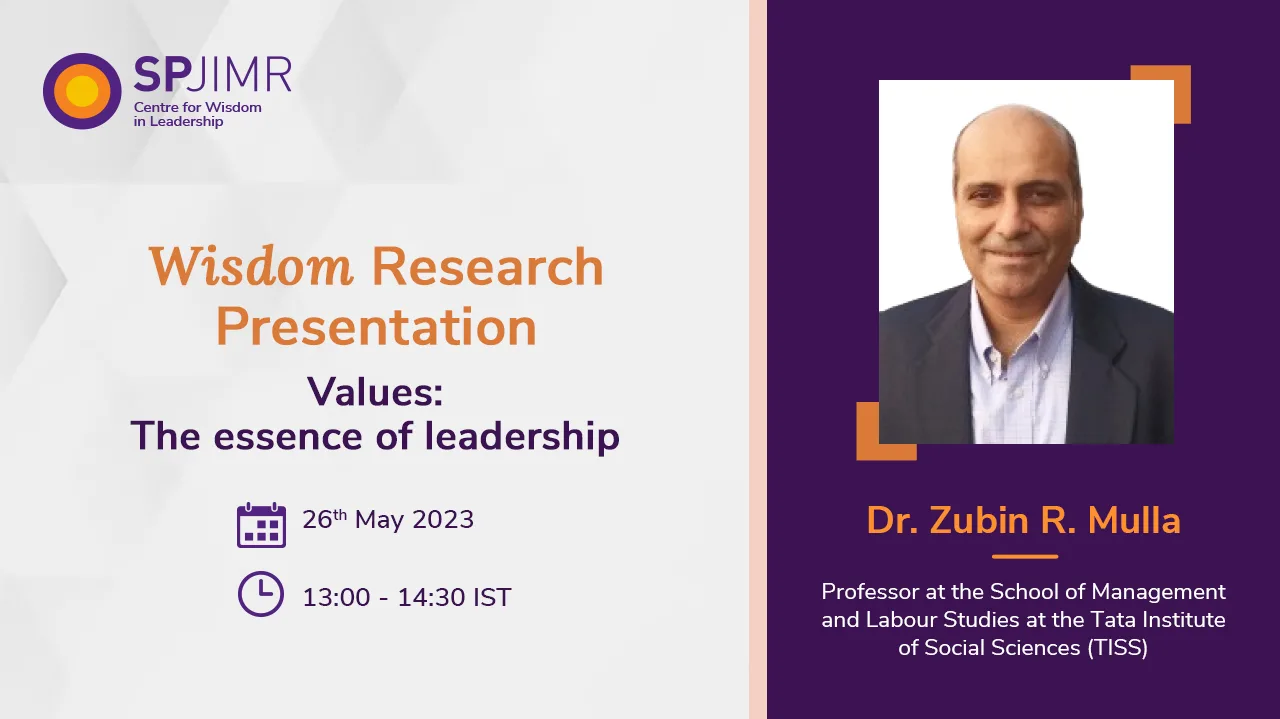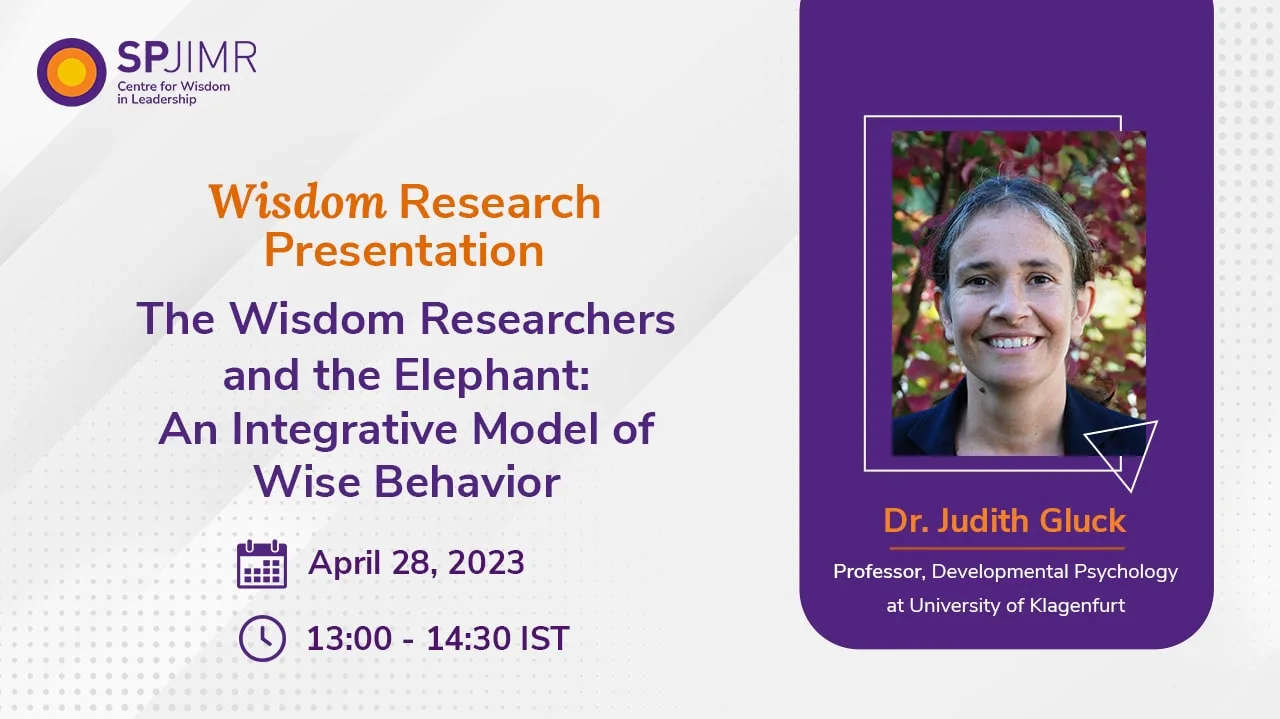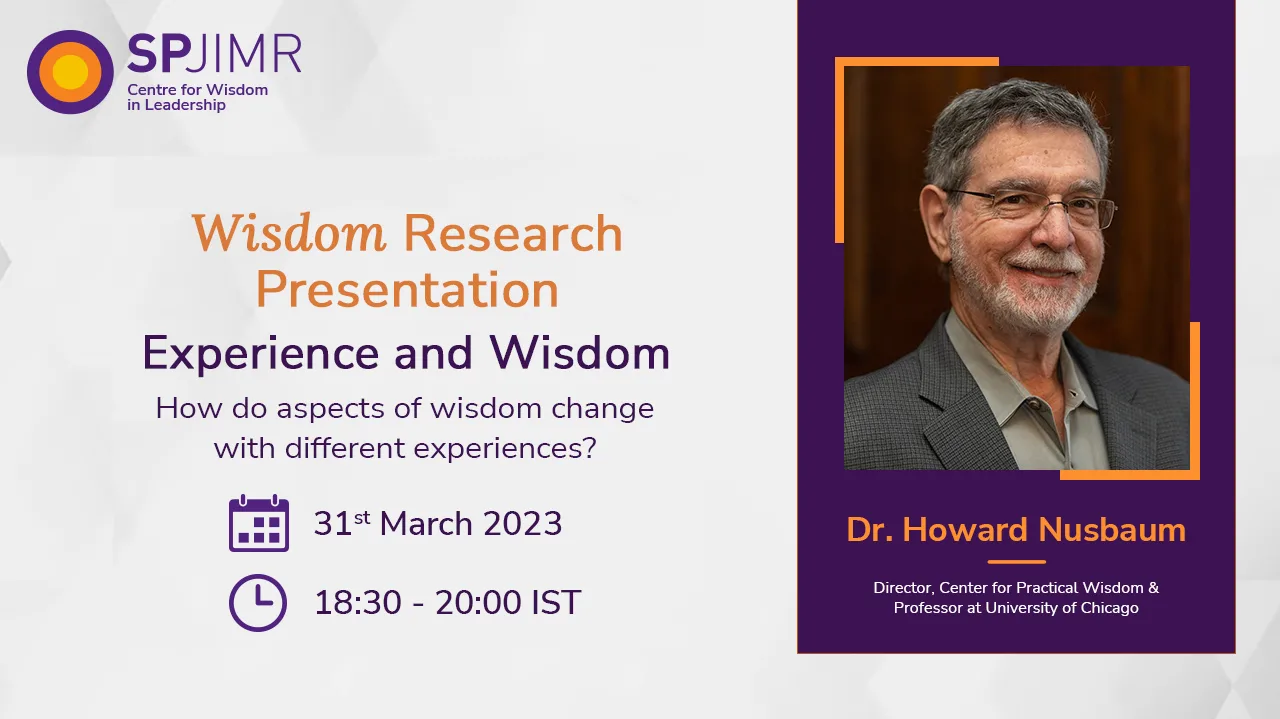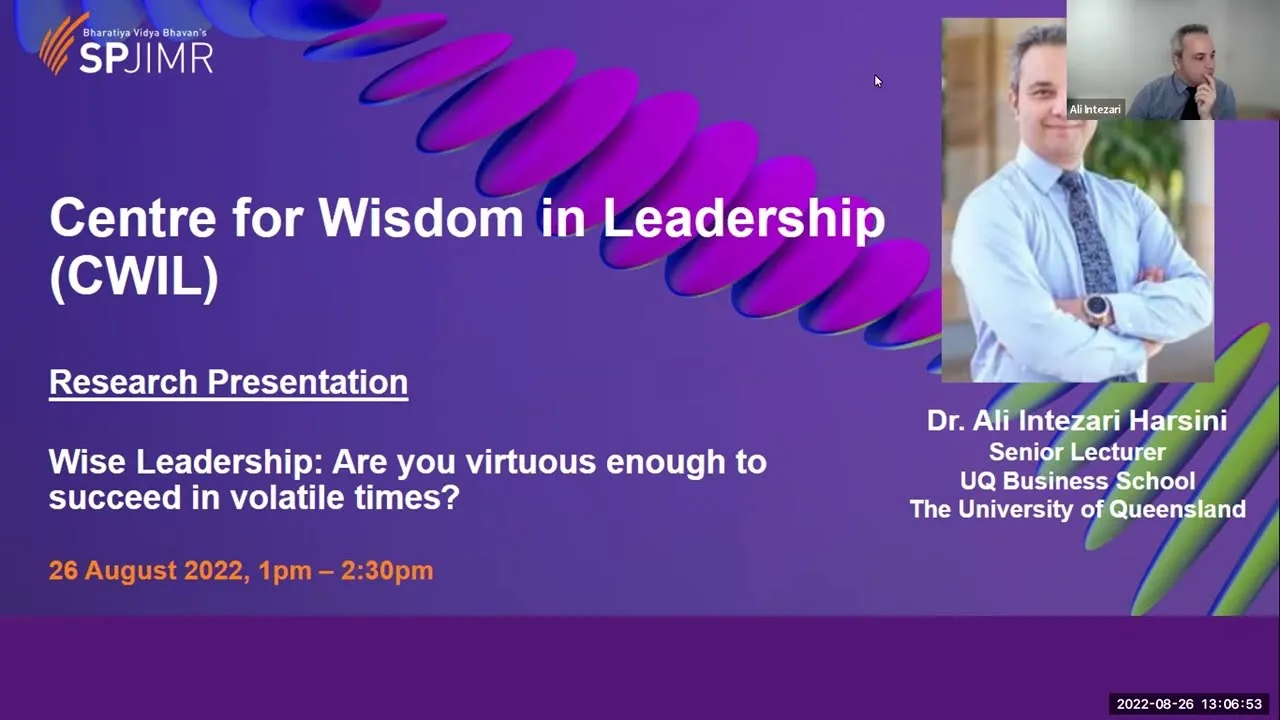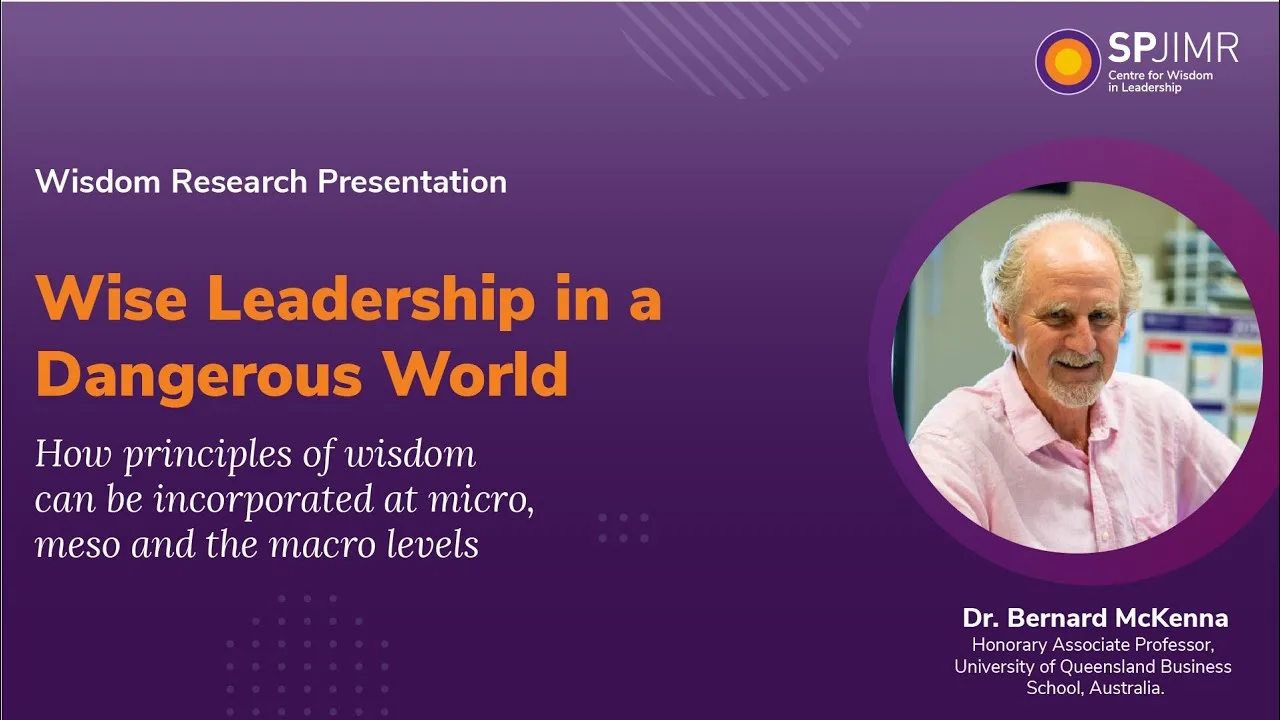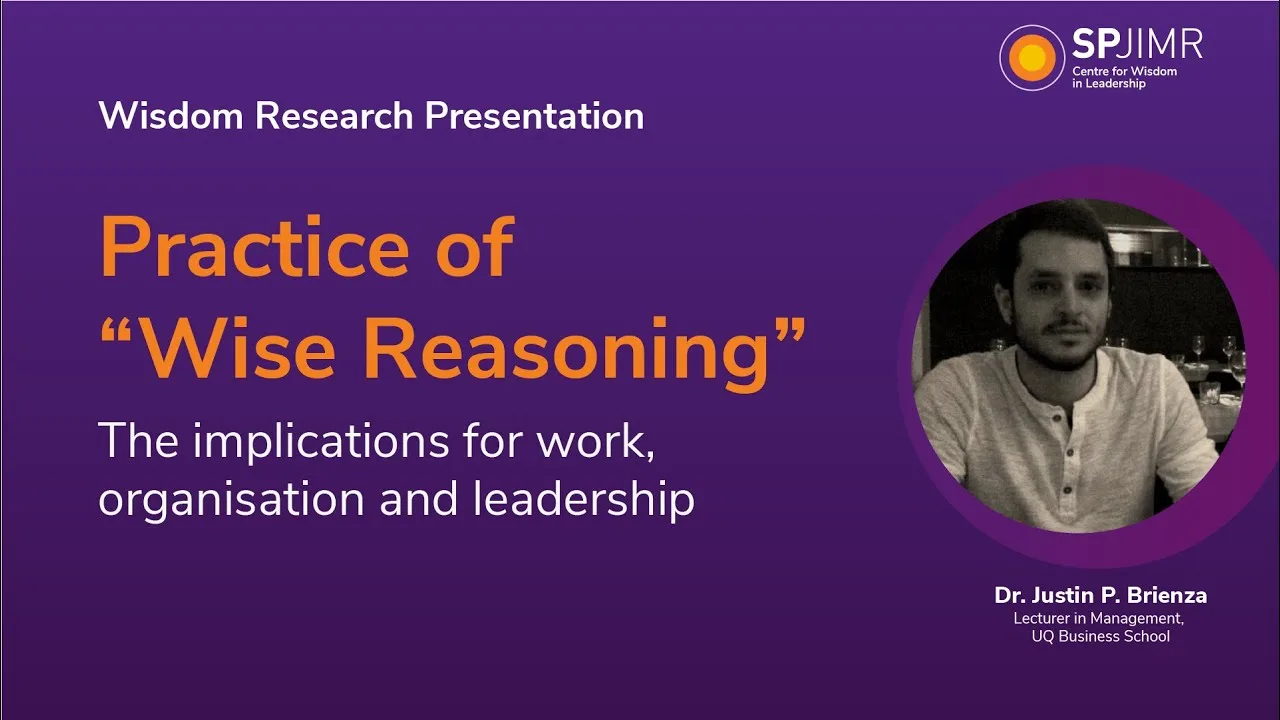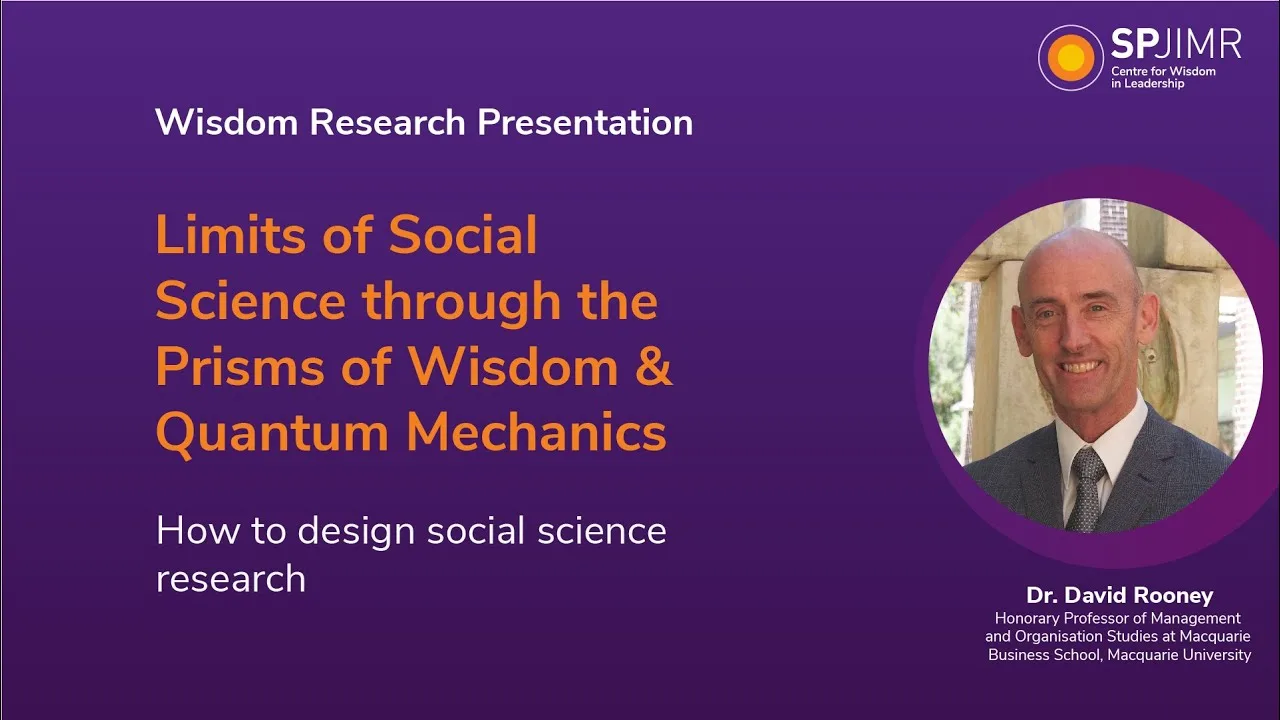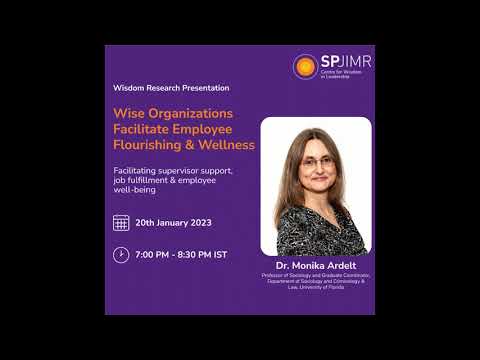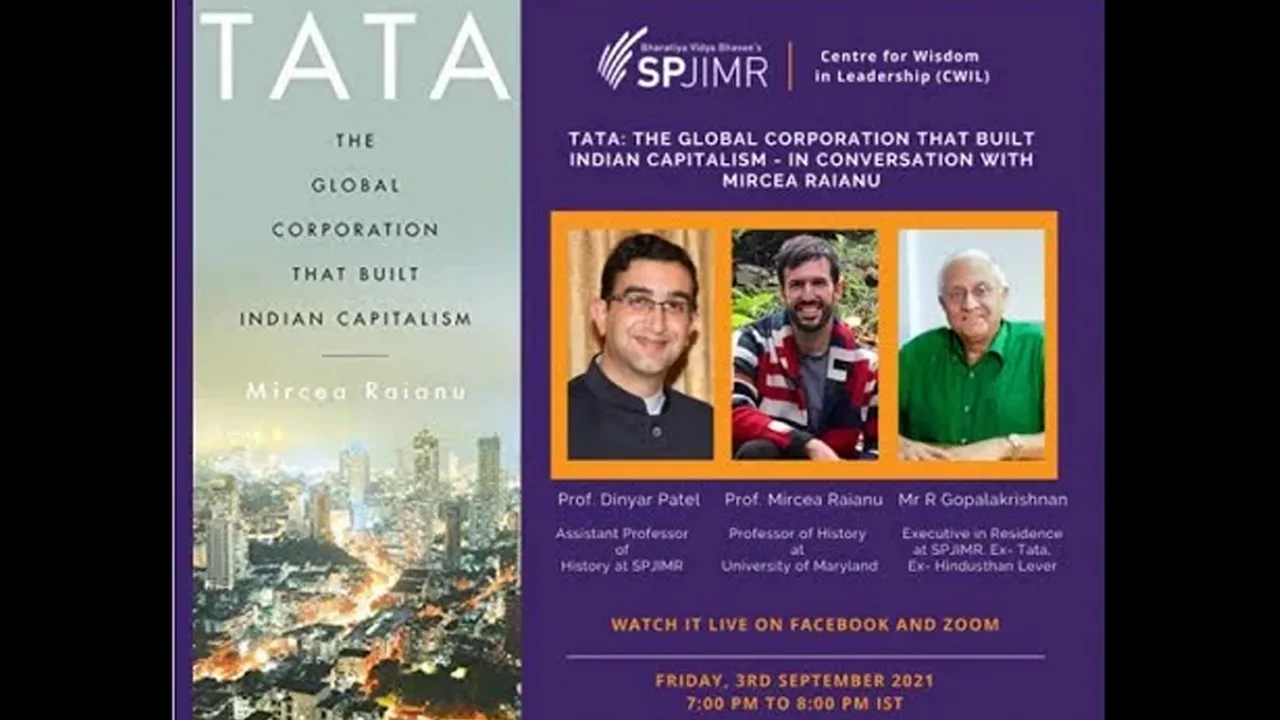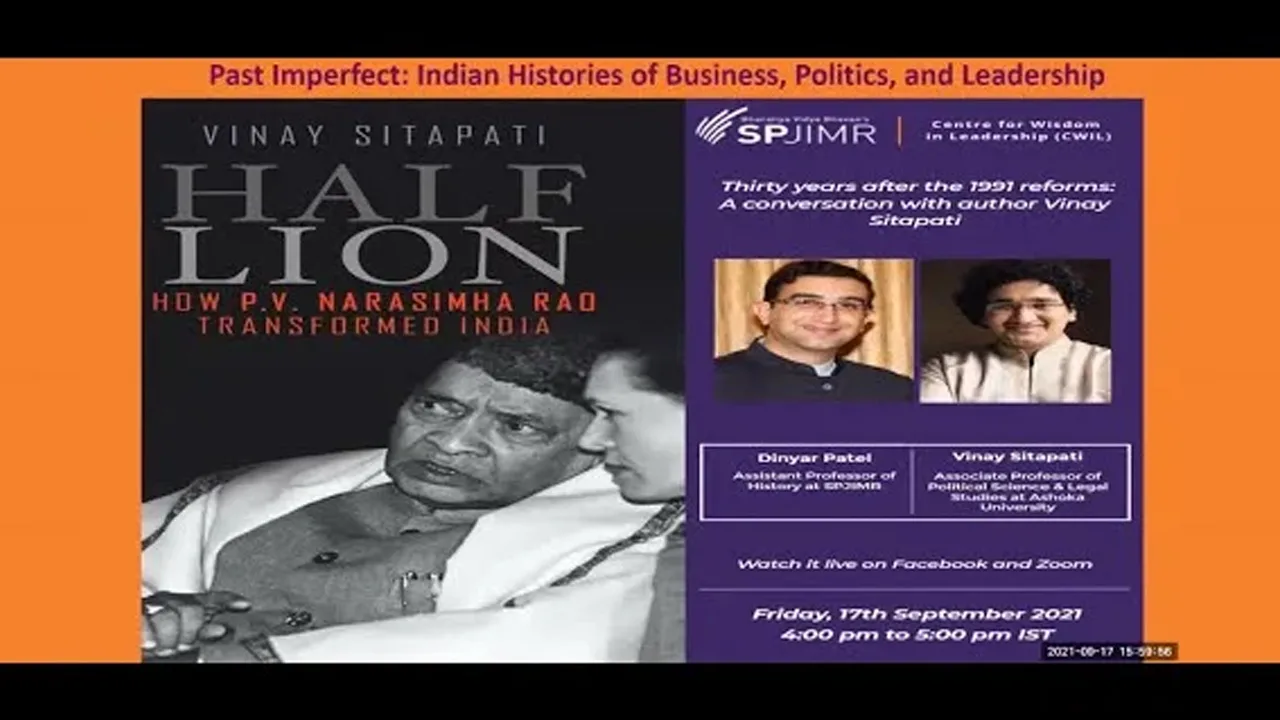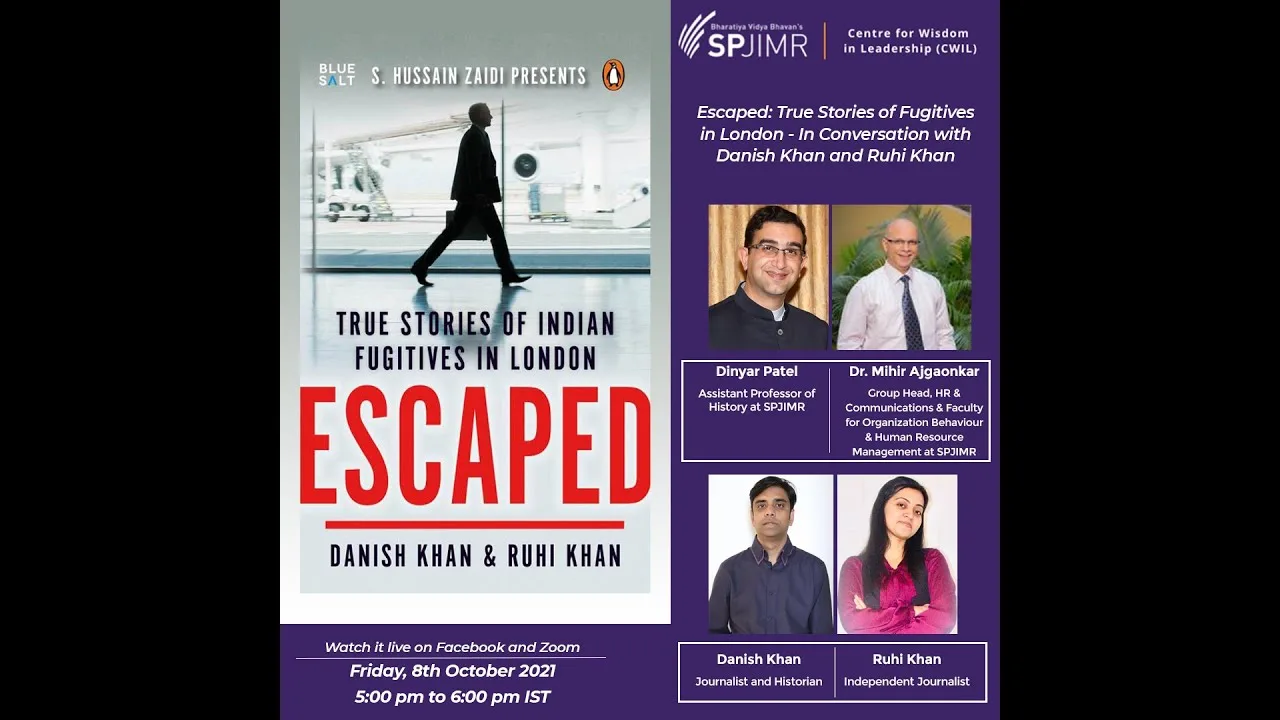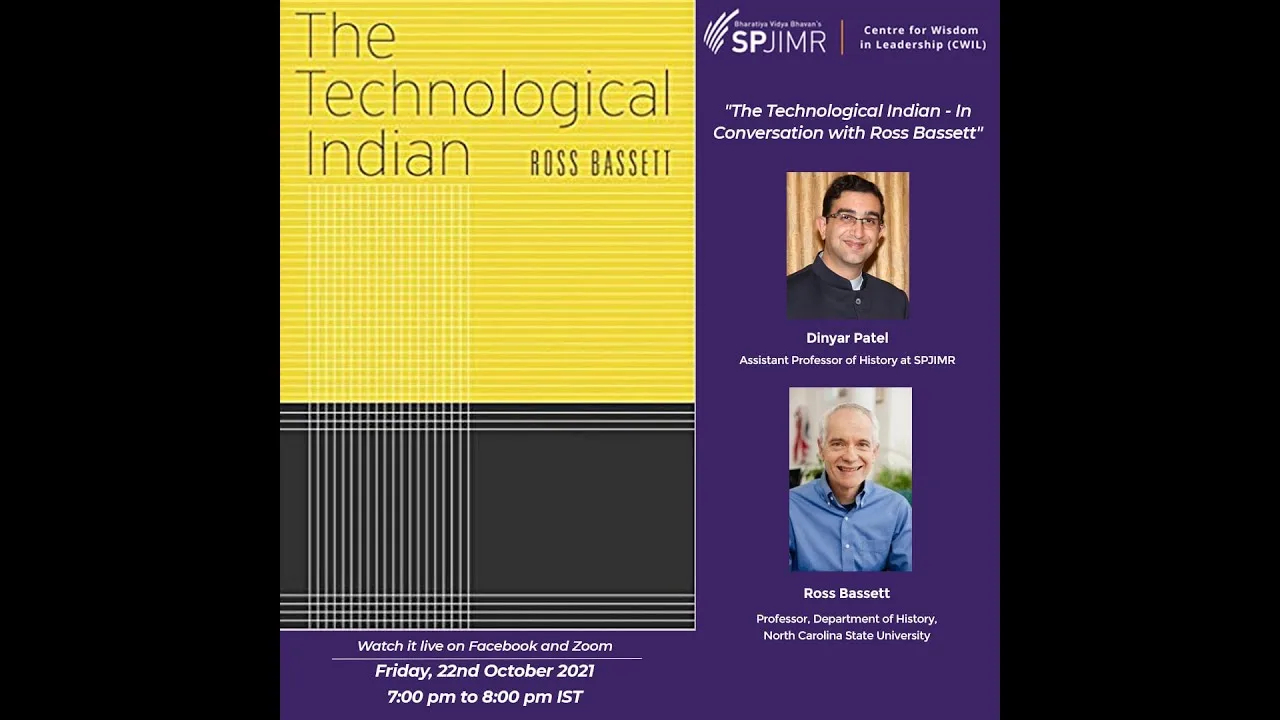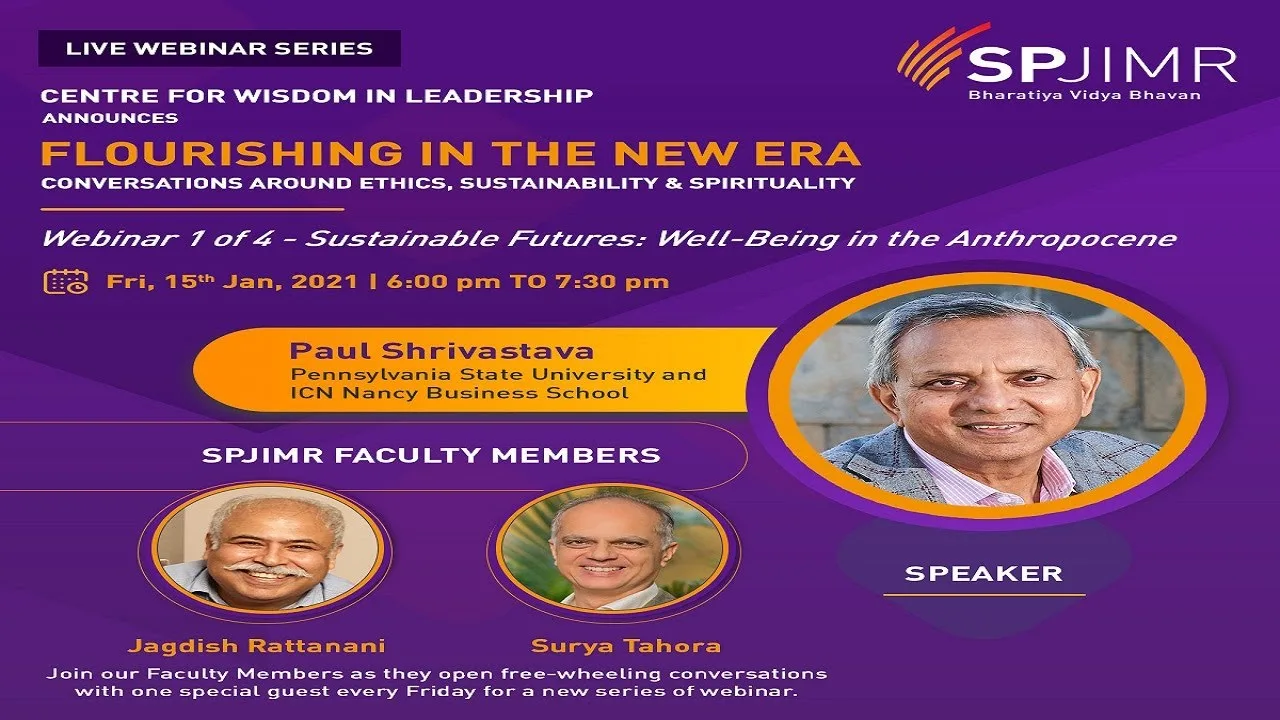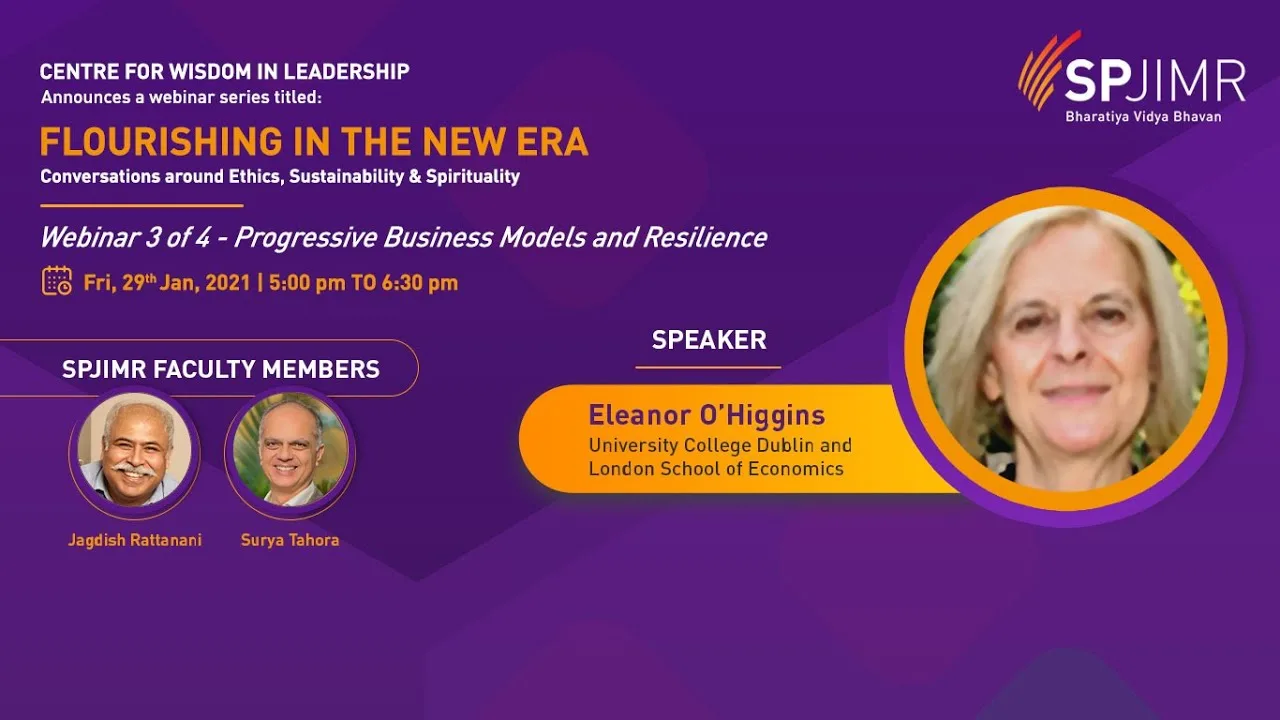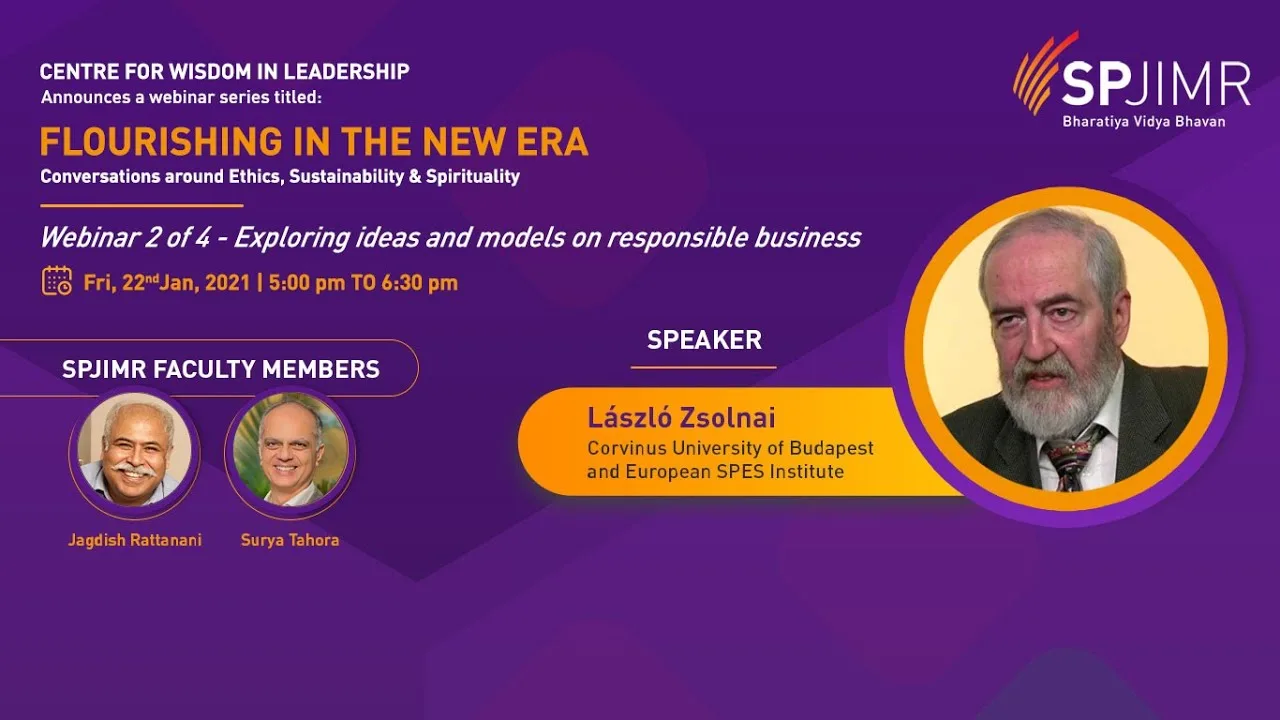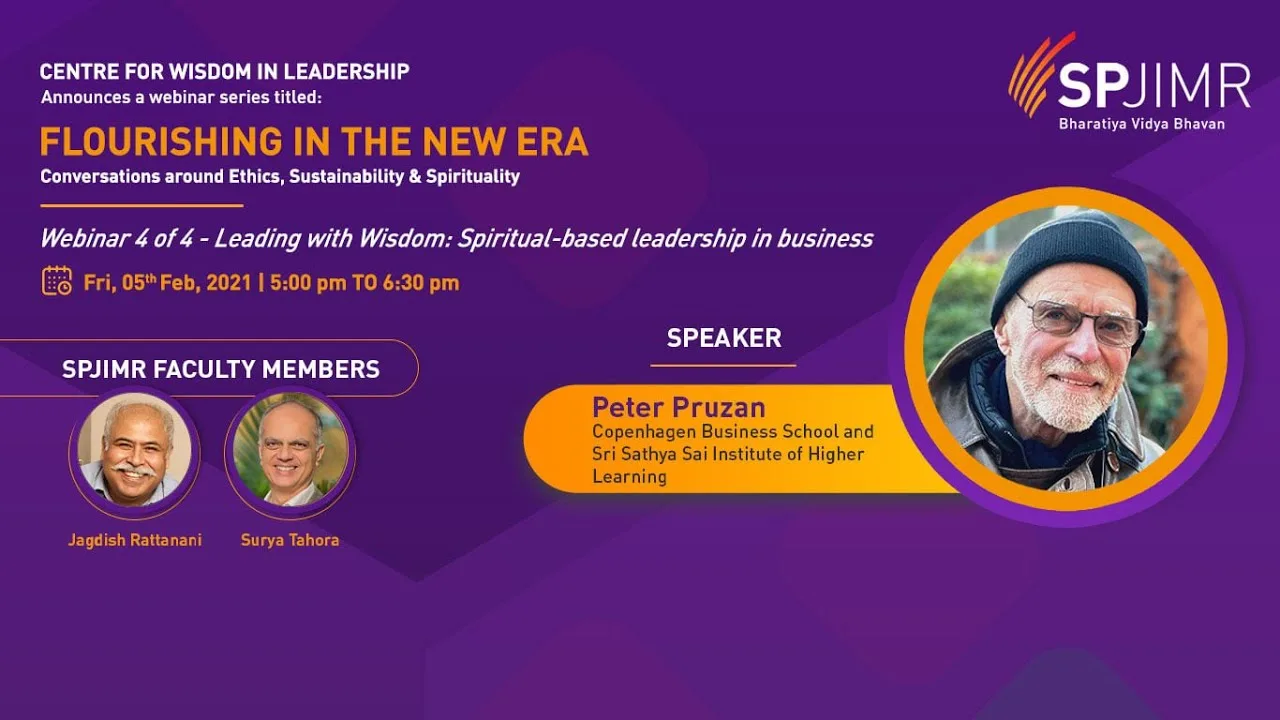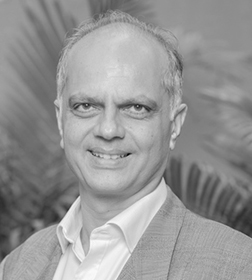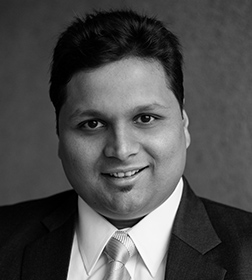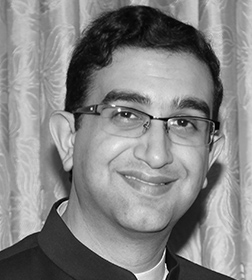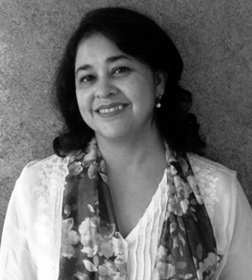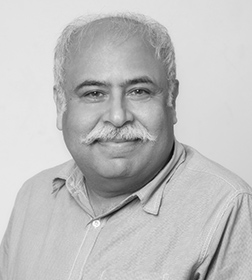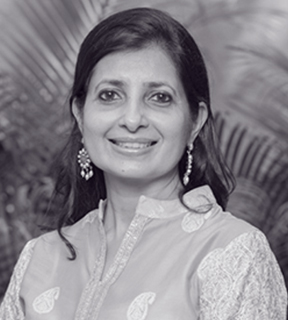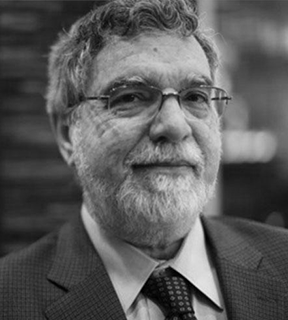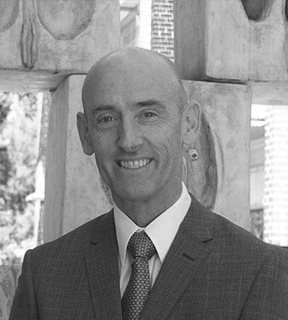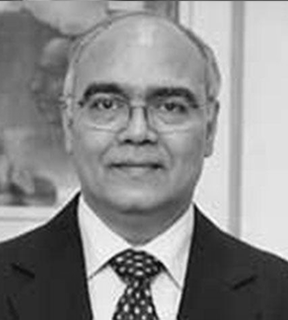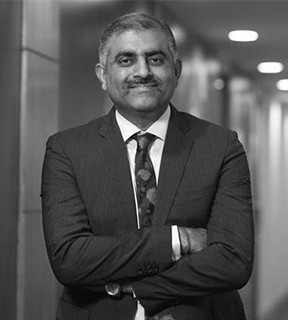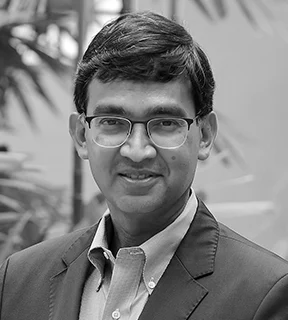Humanist management: Role of practical wisdom and responsible leadership
CWIL's fourteenth Wisdom Research Presentation was conducted by Prof. Ashish Pandey, faculty at Shailesh J. Mehta School of Management, Indian Institute of Technology Bombay, Mumbai and Visiting Faculty at Indian Institute of Management Ahmedabad, on Friday, 19th January 2024.
In this presentation titled “Humanist management: Role of practical wisdom and responsible leadership”, Prof. Pandey shares how the Indian worldview and its implications are parallel to the contemporary ideas of humanistic management. He shares how Indian perspectives and practices are helping practising managers to apply practical wisdom in the day to day work and how responsible leadership is practised by many Indian managers in complex business situations.
Connecting personal development to positive impact
CWIL's thirteenth Wisdom Research Presentation was conducted by Prof. Tatiana Trevisan, Unit Convenor at Macquarie University and Energy Solutions Specialist at Green Energy Group. In this presentation titled "Connecting personal development to positive impact” Prof. Trevisan presents a case study of SPJIMR, that aims to develop leaders who do not only create value for the business, but also for others, society, and themselves. She discusses her research, which aimed to identify the activities and interventions that business schools can utilise to develop conscious leaders. The article offers a novel model of the learning mechanisms and competencies that can support business schools to be a catalyst for developing such leaders.
The Future of Corporate Sustainability
CWIL's twelfth Wisdom Research Presentation was conducted by Dr. Chris Laszlo - Professor of Organizational Behavior at Case Western Reserve University’s Weatherhead School of Management. In this presentation titled "The Future of Corporate Sustainability", Prof. Chris Laszlo reflects on the changes, since the publication of his 2003 book, The Sustainable Company. He deliberates on the two major challenges facing businesses over the next 10 to 15 years. The first challenge is distinguishing between doing less harm, incremental positive impact, and system-wide transformation. The second is to catalyse transformation through direct-intuitive practices that give a person an experience of wholeness and connectedness. He underscores that only by reconnecting business leaders to their authentic selves, others, nature, and the transcendent can businesses meet rising societal expectations for solutions to wicked problems such as climate change and social equity.
Stages of Meditation and Traditional Wisdom: Challenges to Neuroscience
CWIL's eleventh Wisdom Research Presentation was conducted by Prof. Sisir Roy, Senior Homi Bhabha Fellow and Visiting Professor, National Institute of Advanced Studies, IISC Campus, Bengaluru, India on Friday, 18th August, 2023.
In this presentation titled "Stages of Meditation and Traditional Wisdom: Challenges to Neuroscience" Prof. Sisir Roy emphasizes that the brain acts as a noise regulatory device. Hence deciphering noise in the brain may open new vistas in future meditation research.
Indian Psychology for Personality Studies: Need, Challenges, and Future Directions
CWIL's tenth Wisdom Research Presentation was conducted by Prof. Kumar Alok, Assistant Professor, Organisational Behavior, XLRI Xavier School of Management, Jamshedpur. In this presentation titled "Indian Psychology for Personality Studies: Need, Challenges, and Future Directions", Prof. Kumar Alok speaks about the need for Indian psychology for personality studies to evaluate the current state of triguṇa-based personality research. He also talks about future directions regarding leveraging the Sāṁkhya system of thought for personality research.
Sadhu Marga: An Indian Model of Living and Leading
Continuing its series of Wisdom Research Presentations, CWIL concluded its Ninth Presentation on 'Sadhu Marga: An Indian Model of Living and Leading' by Prof. Dharm Bhawuk. This presentation examined the management style of Pujyapramukha Swami Maharaja, the leader of BAPS, from 1950 to 2016. By analysing the vows of a sadhu in the BAPS tradition and observing how he exemplified them in his life, it becomes evident that he led by example. The implications of his leadership style for leadership, in general, were also discussed.
Values: The essence of leadership
CWIL successfully concluded the eighth presentation in its Wisdom Research Series: ‘Values: The essence of leadership’ by Prof. Zubin R. Mulla. This presentation highlighted the importance of values in leadership, noting that a leader’s values predict the emergence of transformational leadership and impact the effectiveness of leader behaviours.
The Wisdom Researchers and the Elephant: An Integrative Model of Wise Behaviour
CWIL's seventh Wisdom Research Presentation was conducted by Judith Glucke, Professor of Developmental Psychology at the University of Klagenfurt, Austria. In this presentation titled "The Elephant Model of Wise Behaviour: Towards a Better Understanding of Wisdom", she speaks on the development of wisdom through an interplay of life experiences and psychological resources, the relationship of wisdom and morality, and people’s conceptions of wisdom across cultures. To learn more about Prof. Glucke and her work, please visit:
https://www.aau.at/psychologie/wisdom-lab/
Experience and Wisdom: How do aspects of wisdom change with different experiences
CWIL's sixth Wisdom Research Presentation was conducted by Dr Howard Nusbaum, Director of the Chicago Center for Practical Wisdom and the Stella M. Rowley Professor of Psychology at the University of Chicago on Friday, March 31, 2023.
In this presentation titled “Experience and Wisdom”, Dr Nusbaum speaks about how although wisdom is generally thought to increase with ageing, it is apparent that experience is the causal agent that works to improve wise reasoning. He discusses the range of different kinds of experiences that can positively benefit some of the processes that are important in wise reasoning.
To know more about Dr. Nusbaum and his work, visit https://wisdomcenter.uchicago.edu/
Wise Leadership: Are you virtuous enough to succeed in volatile times?
CWIL's first Wisdom Research Presentation was conducted by Dr. Ali Intezari Harsini - Senior Lecturer at UQ Business School, University of Queensland, Brisbane, Australia, on 26th August 2022. In this presentation titled “Wise Leadership: Are you virtuous enough to succeed in volatile times?” Dr. Intezari discusses why decision situations can be more wicked than we think, and addresses how wisdom contributes to leadership in circumstances of extreme unpredictability.
To know more about Dr. Harsini, and his work, please click the following link:
https://business.uq.edu.au/profile/3661/ali-intezari-harsini
Wise Leadership in a Dangerous World
CWIL's second Wisdom Research Presentation was conducted by Dr Bernard McKenna -Honorary Associate Professor at UQ Business School, University of Queensland, Australia, on 16th September 2022. In this presentation titled “Wise Leadership in a Dangerous World”, he discussed how principles of wisdom through a different lens. The lens will look at three levels at which wisdom or the lack of it can occur: the micro (self and intimate others), the meso (organizations, including workplaces, and communities in which we operate), and the macro (national, global).
To know more about Dr. McKenna, and his work, please click the following link:
https://business.uq.edu.au/profile/38/bernard-mckenna
Practice of "Wise Reasoning"
CWIL's third Wisdom Research Presentation was conducted by Dr Justin Brienza, Lecturer in Management, UQ Business School, Australia, on 22nd October 2022. In this presentation titled “Practice of Wise Reasoning”, Dr Brienza discusses his research studies on how wise reasoning can improve problems at work and leadership.
To know more about Dr. Brienza, and his work, please click the following link:
https://researchers.uq.edu.au/researcher/25434
Limits of Social Science through the Prisms of Wisdom & Quantum Mechanics
CWIL's fourth Wisdom Research Presentation was conducted by Dr. David Rooney - Honorary Professor, Macquarie Business School, on Friday, 4 November 2022. In this presentation titled “Limits of Social Science through the Prisms of Wisdom & Quantum Mechanics”, Dr Rooney discusses about the possibilities of taking a more serious look at social ontology, at social science epistemology, and at how we might expand the methodological, and analytical capabilities of social science to meet the challenges of an increasingly problematic social, political, and economic world.
To know more about Dr. Rooney, and his work, please click the following link:
https://researchers.mq.edu.au/en/persons/david-rooney/publications/
Wise Organizations facilitate Employee Flourishing & Wellness
CWIL's fifth Wisdom Research Presentation was conducted by Dr Monica Ardelt, Professor of Sociology and Graduate Coordinator at the Department of Sociology and Criminology at the University of Florida, on Friday, 20th January 2023. In this presentation titled “Wise Organizations Facilitate Employee Flourishing and Wellness”, Dr Ardelt speaks about how wise organizations are likely to have a positive impact on employee flourishing and wellness if their ultimate goal is to promote the common good. She discusses her research study, where the dimensions of the Three-Dimensional Wisdom Model were integrated with the psychological needs for competence, autonomy, and relatedness of Self-Determination Theory.
To learn more about Dr Ardelt and her work, please click the following link:
https://people.clas.ufl.edu/ardelt/


